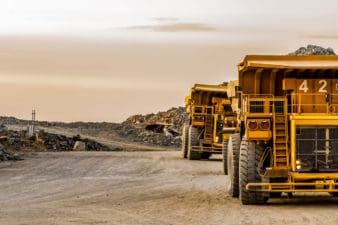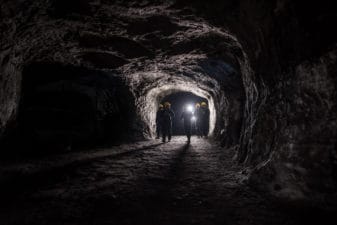Barrick Gold Corp’s (TSX:ABX)(NYSE:ABX) 63.9% stake in Tanzania’s biggest gold miner Acacia Mining Plc could be under a serious threat, as the recent news of an extended mineral export ban and new outrageous government accusations currently imply.
While Barrick asserted earlier that Acacia’s affected operations’ contribution to the leading gold miner was just about 6% of its annual production guidance, all Acacia’s Tanzanian operations constitute about 10% of Barrick’s 2017 annual production guidance.
The new government task force’s reported findings and recommendations were so outrageous and unbelievable to the extent that Barrick Gold’s chairman John Thornton had to fly to the country and hold a meeting with the country’s president.
The Tanzanian government is accusing Acacia Mining of tax evasion and under-declaring mineral content in export containers by a factor of 10. These accusations, if true, would make Acacia the world’s third-largest gold miner, which the company argues is technically not feasible.
Acacia is also being accused of not reporting some mineral exports, like iridium and rare earths, and, even worse, the government task force concluded that Acacia was operating illegally in Tanzania while recommending the government acquire stakes in local mining operations.
It is at the back of such serious accusations that Acacia and Barrick Gold are getting into negotiations with the host government led by one of the toughest African presidents, and I do not foresee the private business team getting out of the negotiations without incurring some significant losses.
The Tanzanian government is demanding the payment of royalties and reimbursements of unpaid taxes, and figures could range into tens of billions.
Even though Acacia is still maintaining that its production guidance for 2017 remains unchanged, the export ban has already resulted in Acacia’s cash position almost halving since March, and the ban’s extension seriously threatens the viability of the business.
It has been reported that Barrick’s chairman has accepted the government’s demand for a new ore processing plant — a proposition that Acacia had previously shot down, arguing that the cost of the new plant would make it economically non-viable.
Backing Acacia’s claims was a government task force report in 2011 that concluded that Tanzania was not producing enough gold and copper concentrate required for the smallest processing plant to run viably at the time.
While the technology may have changed recently, the costs may still be exorbitant, otherwise Acacia and Barrick would have agreed to the construction in exchange for tax credits to avoid this bad confrontational situation.
There could be compromises from both teams, but a compromise on Barrick and Acacia’s position directly means reduced profitability, more “unplanned” capital investments, and could even lead to more royalties and taxes.
However, the Tanzanian president reportedly said that “we should be able to come to a compromise,” and the country’s justice and constitutional affairs minister retorted that the country would immediately begin amending its mining, gas, and tax laws to ensure it benefits more from its natural resources.
The gold miners’ position is therefore tight, and if Acacia is not prepared to exit Tanzania and close all operations, then the company should accept some significant losses to continue as a going concern in the country.
However, Tanzania is also messing with its largest foreign investor and employer, while the developing country critically needs more foreign direct investment to further realize its economic development targets.
The country knows that a sustained battle with Acacia will only scare away any new foreign investment into the developing country.
Both sides need to reach a compromise, and Barrick will have its share of losses, too.






